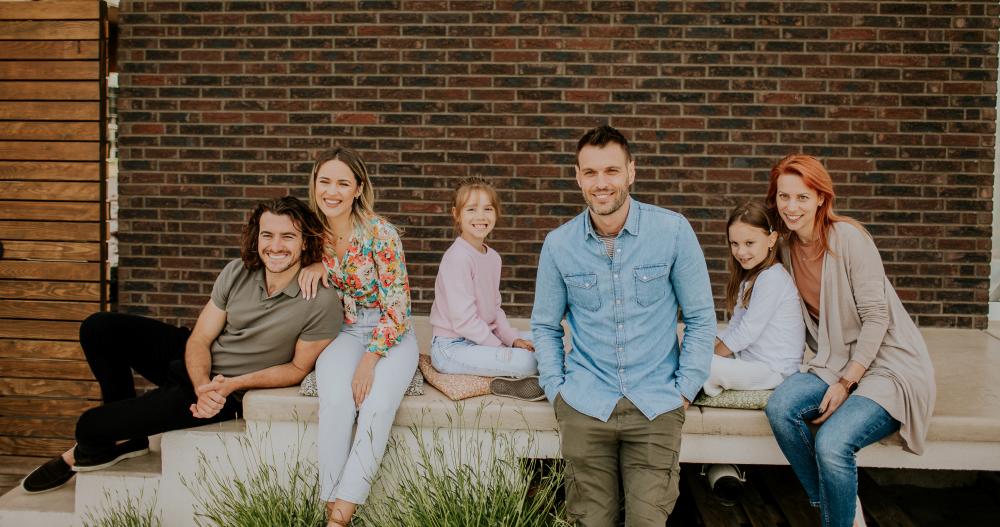
Introduction to Family Driven Recovery
At ēdge Recovery Life Skills, we believe in the power of family driven recovery. This method not only addresses the individual struggling with substance abuse but also empowers the entire family. With more than half of those in residential treatment experiencing relapse soon after discharge, our approach focuses on building a strong, supportive family network that enhances the recovery process and reduces relapse rates significantly.
Understanding the Role of Family in Recovery
Why Families Matter
Substance abuse is a complex issue that affects not only the individual but also those closest to them. Family driven recovery acknowledges this by actively involving family members in the recovery process, creating a unified front against addiction. It’s about leveraging the strength of family bonds to foster a supportive environment conducive to lasting recovery.
The Benefits
Engaging families in the recovery journey comes with manifold benefits. It provides a network of support for the individual, reduces feelings of isolation, and helps to repair relationships damaged by addiction. Our approach at ēdge emphasizes these aspects, aiming to facilitate healing for everyone involved.
Stages of Family Driven Recovery
Pre-Treatment Empowerment
Our unique pre-treatment empowerment training prepares families for the journey ahead. It equips them with the necessary tools and knowledge to support their loved one through the recovery process.
Comprehensive Training
Through our family/codependency training, we delve deeper into the dynamics of addiction and recovery. Families learn to identify and change unhealthy patterns, fostering a healthier environment for everyone.
Ongoing Support
ēdge Recovery Life Skills offers long-term aftercare support to ensure families continue to grow and thrive well beyond the initial recovery phase. This includes personal development programs and in-home intensive outpatient treatment, ensuring a holistic approach to healing.
Achieving Success with Family Driven Recovery
Statistics speak volumes about the effectiveness of family-driven recovery. With over 92% long-term success rate reported by our participants, it’s clear that incorporating family into the recovery process significantly improves outcomes. This method contrasts sharply with the national average, fundamentally transforming how we approach substance abuse treatment.
Personal Insights and Stories
Throughout our journey at ēdge, we’ve witnessed countless families transform their lives. One story that sticks out is that of a young man who, after multiple failed attempts at solo recovery, finally found lasting sobriety with the support of our family driven recovery approach. His family’s involvement was pivotal in navigating the challenges of recovery, providing him with the love and support needed to overcome his addiction.
Navigating Challenges Together
Understanding Relapse
Relapse is a common part of the recovery journey. We teach families how to view relapse not as a failure but as a stepping stone towards recovery. This mindset shift is crucial for maintaining hope and perseverance through difficult times.
Building Resilience
Resilience is key to navigating the ups and downs of recovery. At ēdge, we focus on strengthening this trait within families, ensuring they have the coping mechanisms to face challenges head-on, together.
Resources and Support for Families
ēdge Recovery Life Skills provides a wealth of resources and support for families dealing with addiction. From in-home treatment options to comprehensive aftercare support, our aim is to guide families towards a successful and fulfilling recovery path. For more information, visit our website or reach out to us directly. Your journey towards healing and long-term recovery starts here.
Conclusion
Family driven recovery is more than a method; it’s a movement towards healing and wholeness for individuals and their families. At ēdge Recovery Life Skills, we’re committed to guiding families through this transformative process, offering the tools, resources, and support needed to achieve lasting recovery. Together, we can overcome the challenges of addiction and build a brighter, healthier future for all.

What are the three stages of family recovery?
Understanding the stages of family recovery is like mapping out a journey where each phase has its significance. Firstly, we have the Pre-Treatment Empowerment stage. Here, families are provided with the knowledge and tools to support their loved one, setting the stage for a collaborative recovery process. The second phase is Comprehensive Training, during which families delve deeper into understanding the nuances of addiction and recovery, learning to create a healthier home environment. The final stage, Ongoing Support, ensures that families continue to receive the guidance and resources they need to maintain progress and manage any challenges that arise. This holistic approach not only aids in the recovery of the individual but strengthens the family unit as a whole.
What are the 5 recovery skills?
In our approach at ēdge, we emphasize five crucial recovery skills that can significantly enhance the recovery journey. These include: Communication, whereby families learn to express their thoughts and feelings effectively; Boundary Setting, essential for creating a safe and supportive home environment; Stress Management, helping both the individual and family members to deal with stress healthily; Conflict Resolution, to navigate disagreements constructively; and finally, Relapse Prevention, where families learn to identify and manage potential triggers effectively. These skills are not just vital for recovery but are invaluable life skills that enhance overall well-being and family dynamics.
Why is family driven care important?
Family driven care transcends traditional recovery models by acknowledging that addiction affects not just the individual but their entire support system. In our experience at ēdge, we’ve seen how incorporating families into the recovery process strengthens relationships and builds a robust support network, significantly improving the likelihood of long-term recovery. Families become active participants in the journey, breaking down feelings of isolation and helping to repair the bonds that addiction may have strained. This collaborative approach fosters a deeper understanding and resilience, proving to be a lighthouse for those navigating the stormy seas of recovery.
What are examples of recovery programs?
At ēdge, our recovery programs are tailored to involve families every step of the way. Examples include our Pre-Treatment Empowerment and Comprehensive Family/Codependency Training, designed to prepare families for what lies ahead. Moreover, our In-Home Intensive Outpatient Treatment offers a unique approach to recovery by providing professional support in the comfort of one’s home, ensuring a seamless transition after formal treatment. Additionally, our Aftercare Support encompasses personal development programs and resources aimed at sustaining progress and nurturing growth. These programs embody our belief in embracing holistic, family-driven recovery methods that address the needs of both individuals and their families.
How do families overcome challenges in the recovery journey?
Overcoming challenges in the recovery journey is akin to navigating a complex maze – it requires patience, understanding, and a unified effort. At ēdge, we emphasize the importance of resilience and open communication. By educating families on the nature of addiction and recovery, we empower them to view relapse not as a setback but as an opportunity for growth. Building resilience involves fostering a supportive environment where everyone feels valued and heard. Encouraging families to share their feelings openly helps to mitigate misunderstandings and strengthens the collective resolve to face and overcome challenges. It’s through this collaborative spirit that families can transform obstacles into stepping stones towards healing and long-term recovery.
Resources for Family Driven Recovery
- Substance Abuse and Mental Health Services Administration (SAMHSA) – SAMHSA is a government organization that provides resources and support for individuals and families dealing with substance abuse.
- National Institute on Drug Abuse (NIDA) – NIDA is a research organization that offers valuable information on drug abuse and addiction, including resources for families.
- National Alliance on Mental Illness (NAMI) – NAMI offers support and resources for individuals and families dealing with mental health and substance use disorders.
- Partnership to End Addiction – This organization offers support and resources for families struggling with addiction, including educational materials and helplines.
